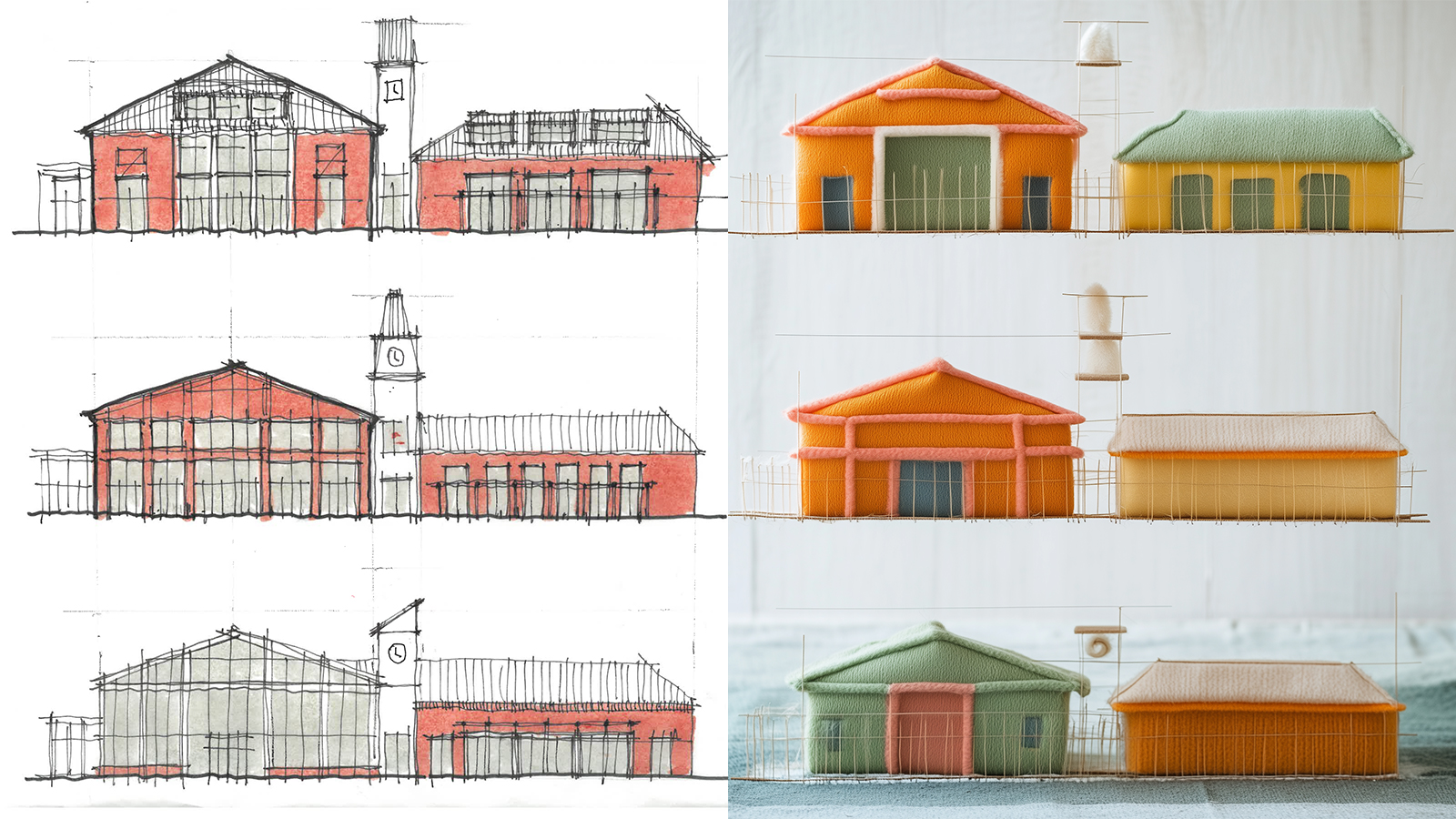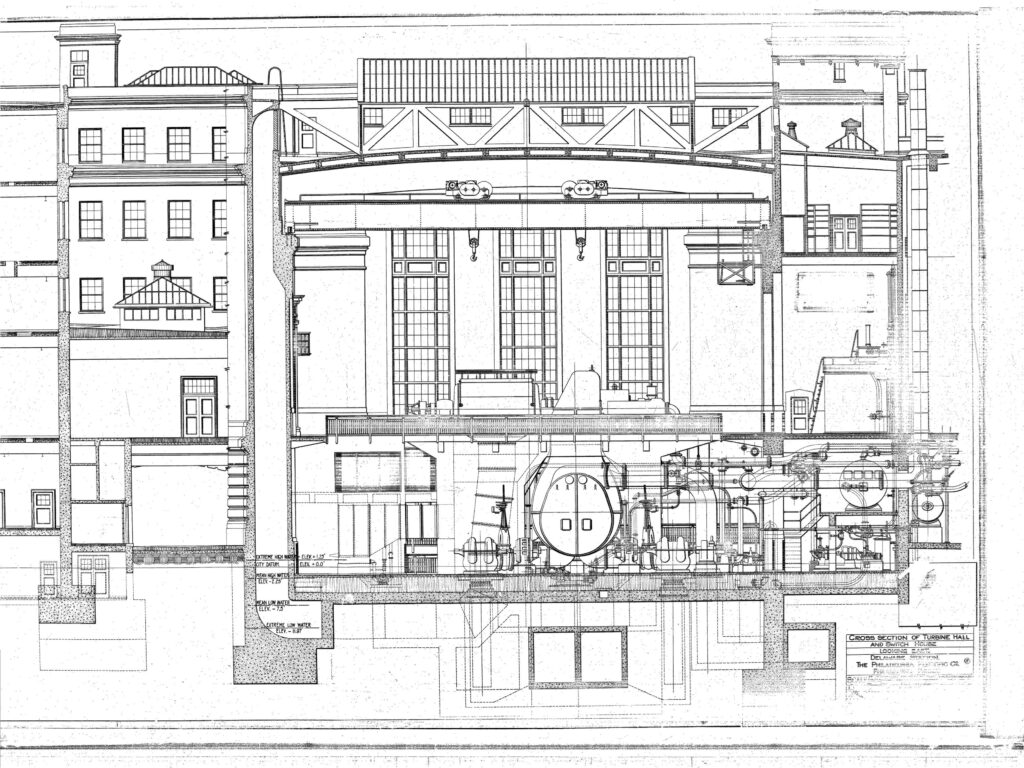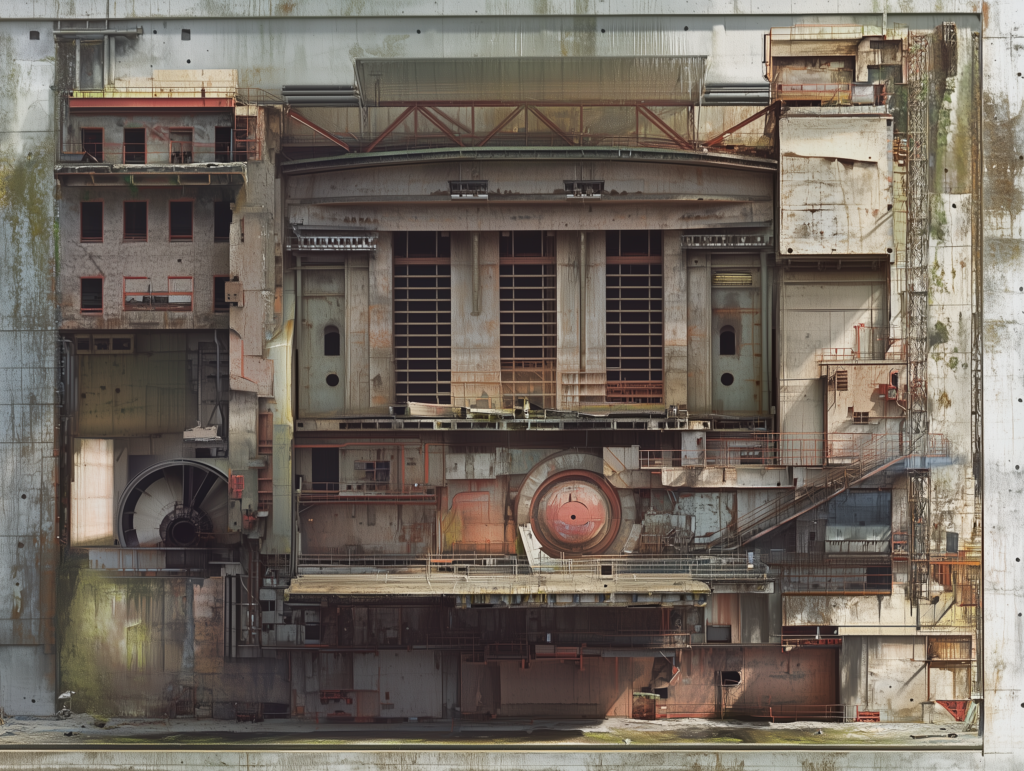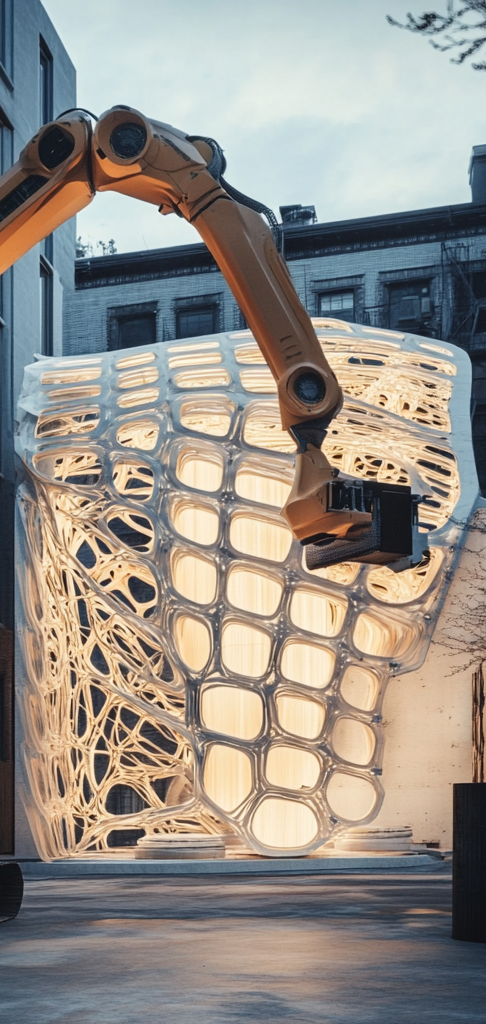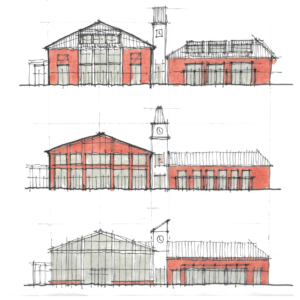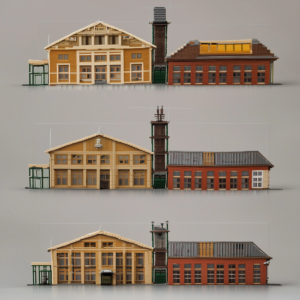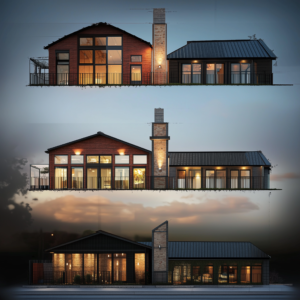Artificial Intelligence. It feels like science fiction found its way out of a book and into our lives. From uncanny valley generated imagery to bad television scripts, Ai has built a reputation for foolish inaccuracy while also striking fear around job security and the future of the human experience. We are deep diving into Ai and how it can help and harm our society, profession, and environment.
We asked Strada Architects and self-proclaimed tech nerds Mark Hensler and Aaron Bell how they see Ai, and how it can be harnessed for the betterment of the architectural world. Our last step? Asking ChatGPT the same questions! To see the full interview, click here.
Strada attended the Ai Horizons conference, where we asked attendees this question: How can AI shape the future of cities?
What insights emerged through this conversation? What are your reactions?
Mark:
The ethics of Ai were a hot topic. How do we regulate something that the public already has some access to? The level of harm versus the level of help Ai can influence depends on the morality of the people using it, and the morality of people who are creating it. The speed of adoption for this technology is 10 times faster than the PC. It’s revolutionary.
Aaron:
Ultimately, we aren’t in the business of prediction, but it’s important to look at Ai as a potential tool for the betterment of people. Automatic driving could revolutionize cities! Less need for parking, removing parallel parking, reclaiming land for people. The instant reactivity of an Ai-driven vehicle could reduce reaction times in a traffic situation to nearly zero, which would ultimately reduce traffic overall. Using Ai to reclaim the world for people, the loveliness of a clean world, that would be great.
What does Ai not understand about Architecture? Can it learn?
Mark:
Ai only knows what its’ been taught, so once we decide to teach it something, it can learn everything we want it to know. This knowledge needs to be shown, not just told. For example, if we could explain what proper egress and ADA requirements are, I think Ai could be trained to generate floor plans. I’d love to see it take one of the Architecture licensing exams to see what it knows already.
Aaron:
Just like any tool, Ai’s success is in how you apply it to a problem. So maybe it’s not what it does and doesn’t understand about architecture, but how the people who do understand architecture invest in Ai. Ideally, that would be developers, both of spaces and of tools like Revit, but likely architects themselves will need to push for the potentials of Ai to get investment in the right places.
Anthropic CEO Dario Amodei had this to say about Ai: “Mostly, it’s a fact of nature. We don’t get to choose, we just get to find out which world we live in, and then deal with it as best we can.” What is the world of Ai in architecture like now?
Aaron:
I don’t think it’s quite there yet. On the generalized side, there are obvious benefits for us and other businesses in any field. Help with writing, researching, and collection of information is common, though it needs treated as an unreliable narrator, so it’s more of a starting point. I’ve tested putting Specifications through Ai, and it can generate ideas, but every aspect still needs checked.
Coding is something I’d like to really harness with Ai. There’s Object Creation in ArchiCAD, which allows you to copy code into the GDL Script Editor and create elements. Both Rhino and Grasshopper can write useful scripts for Python. Essentially, it’s a super power you can learn, but it does take adjustment.
Mark:
When we went from hand drafting and building chip board models to PC modeling, I’m sure there was pushback. Even hand sketching is more commonly done on iPads than paper now. I also like to use the rendered models to “walk” through the space for my own thought process.
Aaron:
Thought process feels like what it should all be about. If you can hit a button and get 10 versions of a building that hits all criteria and is buildable, you just skipped weeks if not months of thinking. It’s an iterative process to design, and there’s value to taking the time for that process. Ai can generate ideas without the human wisdom to exercise judgement. I do worry it could kill this profession if we aren’t careful.
Mark:
Yes, Ai can give you an answer, but it can’t really tell you why. It creates a distance where Ai could just start giving us results that we accept because the data is good enough. But the WHY is lost. Faster isn’t inherently better, but it can enhance our “why” as long as we use it to empower the thought process rather than use it as a crutch.
Author and Management educator Ethan Mollick of the University of Pennsylvania is looking ahead at Ai and the implications it could bring, through both continuation of the current trends and the possible creation of AGI, or Artificial General Intelligence. He states that Ai would essentially do human tasks better than humans, saying, “AI is not a future technology to be dealt with if it happens, it is here now and will require us to think about how we want to use it.” What is your reaction to this statement on AGI?
Aaron:
I’d like to see it take on big challenges. In architecture, we aren’t trying to solve every problem, but we can make our work more sustainable by understanding carbon footprint and adapting our designs to increase sustainability overall. At the urban scale, Ai could be used for smart energy grids, adapting HVAC systems to the finest changes in weather conditions. I’d like to see more of that, using Ai to keep tabs on things we really can’t. Interfacing climate issues and sustainability with modeling could allow us the time to bring more artistic elements back into architecture.
Mark:
My take is that, look, I’m definitely not smarter than Einstein, but I do understand more about physics than he did because of where I exist in history. Einstein created the math, but the research continued past his time. We understand so much more about our universe because someone took the time to understand the math and connect data points. With Ai, data points are connected amore quickly, allowing us to think deeper. I hope AGI emerges in an assistant role, helping humans to be better rather than replacing them. With architecture, I would like AGI to help us design more energy efficient buildings, and analyze our construction processes.
Carnegie Mellon University considers Ai one of the 3 great pedagogical challenges to study now, alongside climate change and social justice. How do these challenges thread together with your work?
Mark:
Of those 3, climate change is the one we have the biggest impact on as architects. Using Ai to analyze the energy grid and adjust the energy use of appliances is already happening, and will continue to keep coming in ways we won’t even realize exist.
Ai is also helping us to see data as patterns, which is massively influential in improving social justice. We’re becoming more and more able to see the WHY of what happens in communities, positively influencing things like urban planning and site analysis. Augmenting the instinct of urban design with actual data to contradict or support those gut reactions will make for better places. It’s powerful to think that Ai will help pull back the curtain on a lot of things, force us to consider the built environment in new ways, and reveal how we interact with each other and the environment. Hopefully we have good solutions as these social and environmental answers emerge.
Aaron:
I connect climate change directly with sustainable building, reducing carbon, and efficiency. Strada is making changes for the environment like ruling out PVCs and reducing other toxic materials through our Healthy Materials Action Plan, and pursing LEED and smart building projects.
Social justice is trickier for architects since we typically deal with a single space. We’re a small piece of a larger process, so it’s important that we engage in conversations that inform our work in ways that support social justice and equity. We are advocates, and we can lead responsible updates in underserved areas if we work with the communities directly.
Ai hasn’t disrupted as much as we thought it would yet, but it will, and we can influence those outcomes by being intentional and steering use in an anticipatory way.
Are tools like Midjourney a threat or an asset to architecture?
Aaron:
My worry with Midjourney is that it gets to a result really quickly, but you don’t know how it got there. It’s all about speed, without regard for better or worse. There’s value in struggling with ideas, doing historic research, learning the underpinning of a built concept. You just don’t learn when Ai does things for you. So much of architecture is systems and components and assemblies. My heart is in the space of learning, and I don’t want to lose sight of struggling through ideas to understand each part of a problem.
A great example is Biosphere 2, a geodome created as a research tool. The trees grew far more rapidly upwards than in nature, and then fell right over. The lack of wind meant the trees did not respond to nature, and so they weakened and collapsed. We humans also benefit from force, like exercising! Stress in the right context is what helps us strengthen and grow.
Mark:
I completely agree. We’re drifting back to Ai ethics. There are reasons kids are not allowed to use Ai for their schooling. My high school son had asked me why he needed to write an essay on To Kill a Mockingbird, and I explained it’s teaching you how to think in new ways. There’s so much value to thinking and learning. It’s what makes the difference between machine and human. As much as I love the idea of Ai to boost creativity, it needs used sparingly or creativity would ultimately be stifled.
Ai is more helpful in connecting data points to help us go 20 layers deeper on a problem. I personally love the process of creation, but would entertain Ai as a critique and an expander of thinking, like a friend you bounce ideas off of. Using it just to create things quickly will stunt us as a society.
Aaron:
Yes, it has to supplement human processes. You have to have tactile relationships in architecture. Ai is a tool, but it requires ethics behind it. If we keep asking it for stuff with no process, we’ll be buried with useless ideas.
Mark:
Between the CMU event and this conversation, I’ve really felt a shift in my understanding of Ai. I had seen it as just a replacement for mindless tasks, but now I feel more optimistic.
